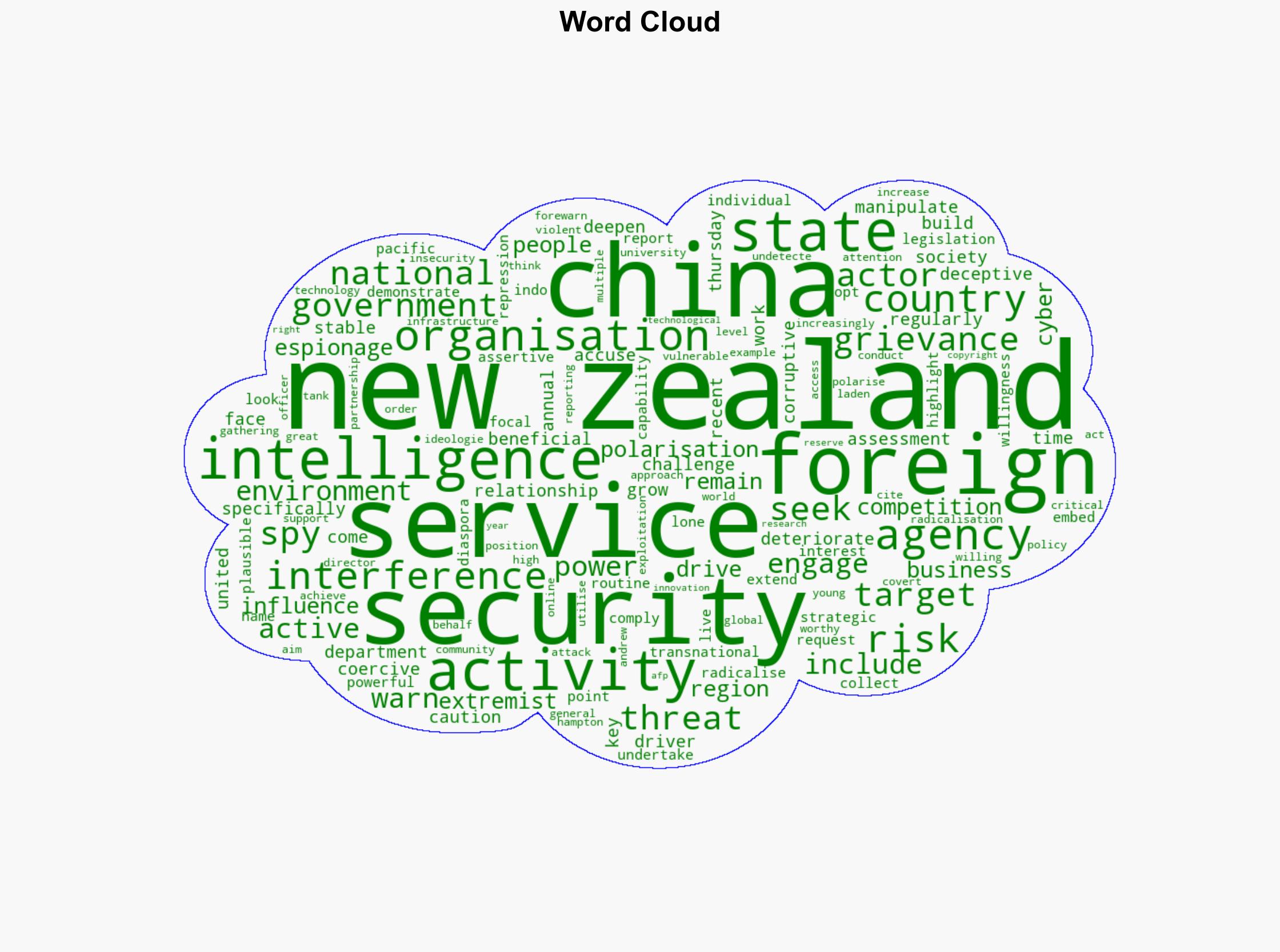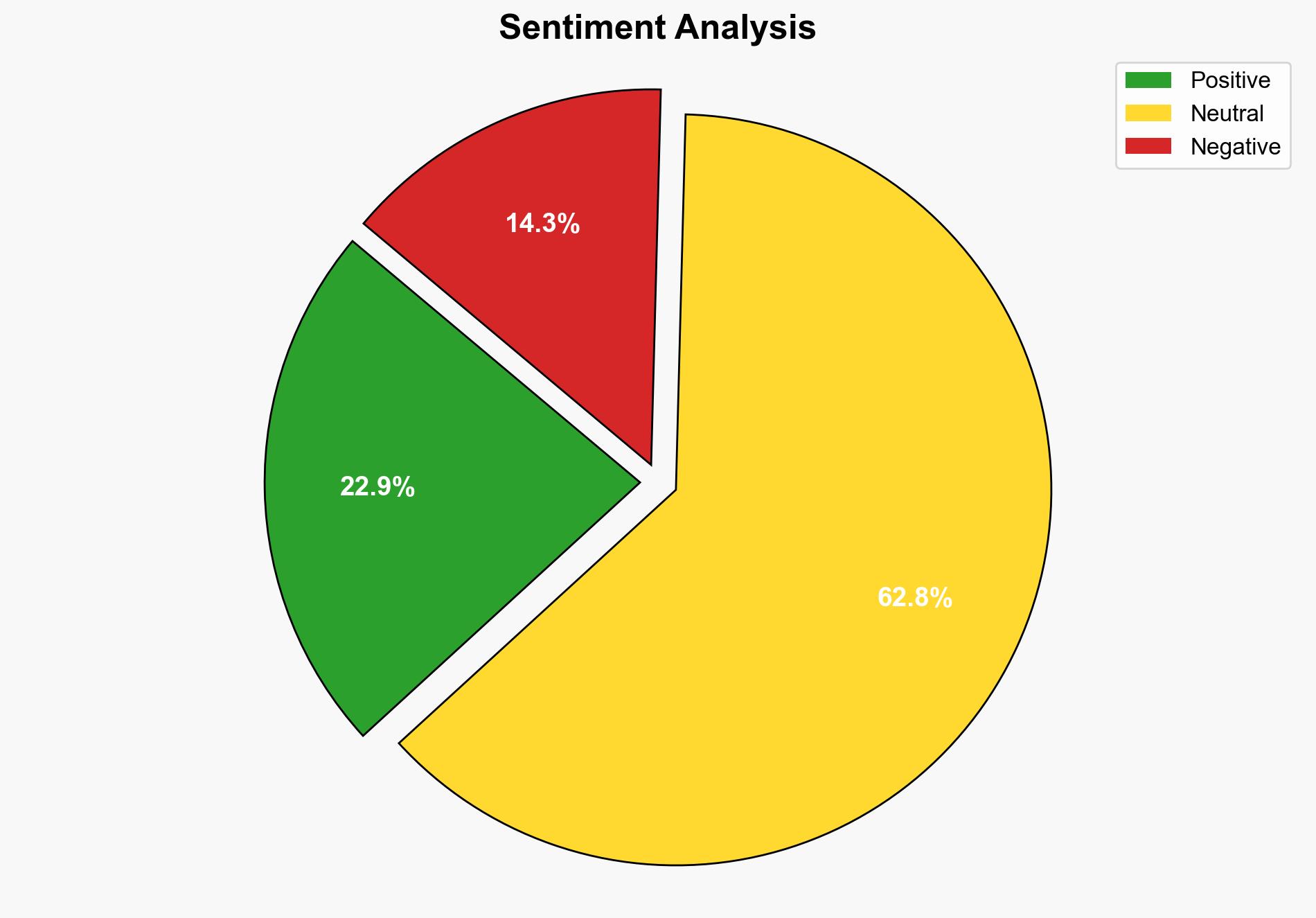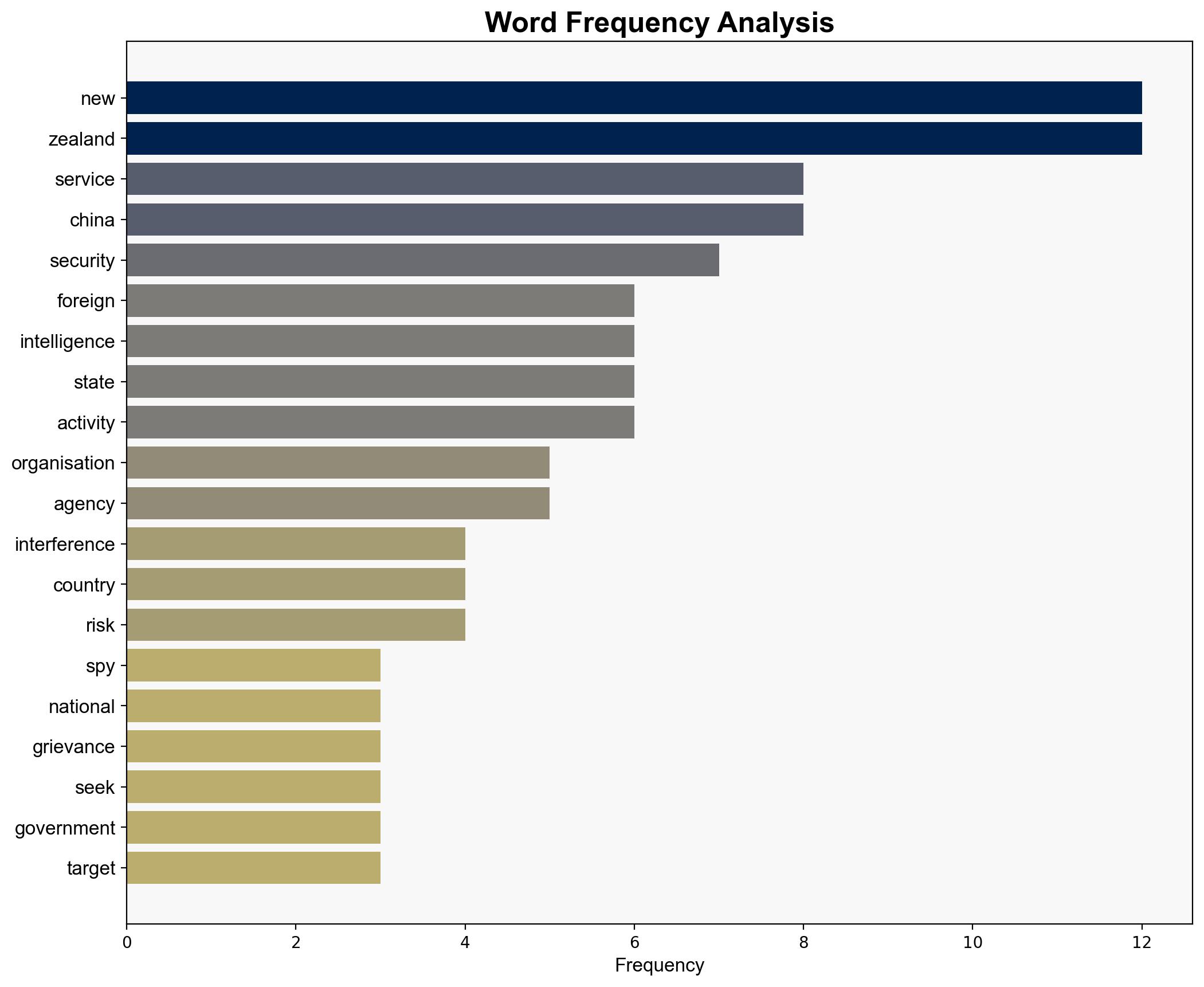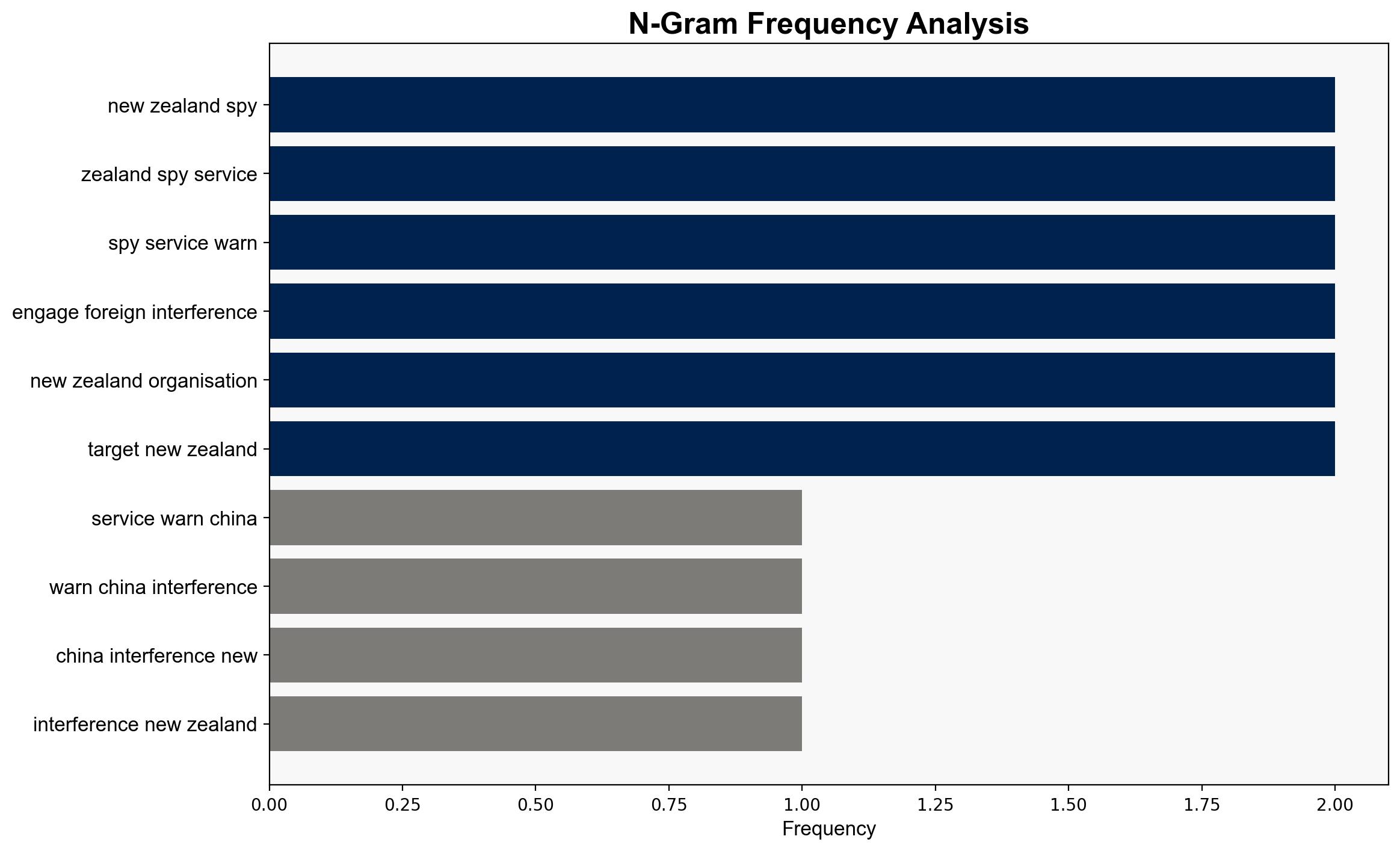New Zealand Spy Service Warns Of China Interference – International Business Times
Published on: 2025-08-21
Intelligence Report: New Zealand Spy Service Warns Of China Interference – International Business Times
1. BLUF (Bottom Line Up Front)
The most supported hypothesis is that China is actively engaging in foreign interference in New Zealand to expand its influence and gather intelligence, posing a significant threat to national security. Confidence level: High. Recommended action: Strengthen counterintelligence measures and enhance cybersecurity protocols to protect critical infrastructure and sensitive information.
2. Competing Hypotheses
1. **Hypothesis A**: China is actively engaging in foreign interference in New Zealand to expand its influence and gather intelligence, using deceptive and coercive methods.
2. **Hypothesis B**: The perceived threat of Chinese interference is exaggerated, possibly due to misinterpretation of China’s legitimate diplomatic and economic activities as espionage or interference.
Using the Analysis of Competing Hypotheses (ACH) 2.0, Hypothesis A is better supported due to the specific accusations from New Zealand’s intelligence agency regarding China’s activities, which include deceptive, coercive, and corruptive methods. The report’s detailed examples of China’s assertive actions in the Indo-Pacific region further support this hypothesis.
3. Key Assumptions and Red Flags
– **Assumptions**: It is assumed that China’s actions are primarily motivated by strategic competition and the desire to extend influence in the Indo-Pacific region.
– **Red Flags**: The potential for cognitive bias exists, where normal diplomatic activities might be misinterpreted as interference. Additionally, the lack of specific evidence or examples of interference activities could indicate an overestimation of the threat.
– **Inconsistent Data**: The report does not provide detailed examples of specific incidents of interference, which could undermine the credibility of the claims.
4. Implications and Strategic Risks
The implications of confirmed Chinese interference include increased geopolitical tension and potential economic repercussions if New Zealand takes a more confrontational stance. Cybersecurity threats could escalate, targeting critical infrastructure and sensitive government data. The psychological impact on the public could lead to increased polarization and suspicion of foreign nationals, affecting social cohesion.
5. Recommendations and Outlook
- Enhance counterintelligence operations to detect and neutralize foreign interference activities.
- Strengthen cybersecurity measures to protect critical infrastructure and sensitive information.
- Engage in diplomatic dialogue with China to address concerns and reduce tensions.
- Scenario-based projections:
- Best Case: Diplomatic efforts lead to a reduction in interference activities and improved bilateral relations.
- Worst Case: Escalation of interference activities leads to significant economic and political fallout.
- Most Likely: Continued low-level interference with periodic diplomatic tensions.
6. Key Individuals and Entities
Andrew Hampton, Director General of Security, is a key individual mentioned in the report, highlighting the importance of the intelligence agency’s role in addressing these threats.
7. Thematic Tags
national security threats, cybersecurity, counter-terrorism, regional focus





